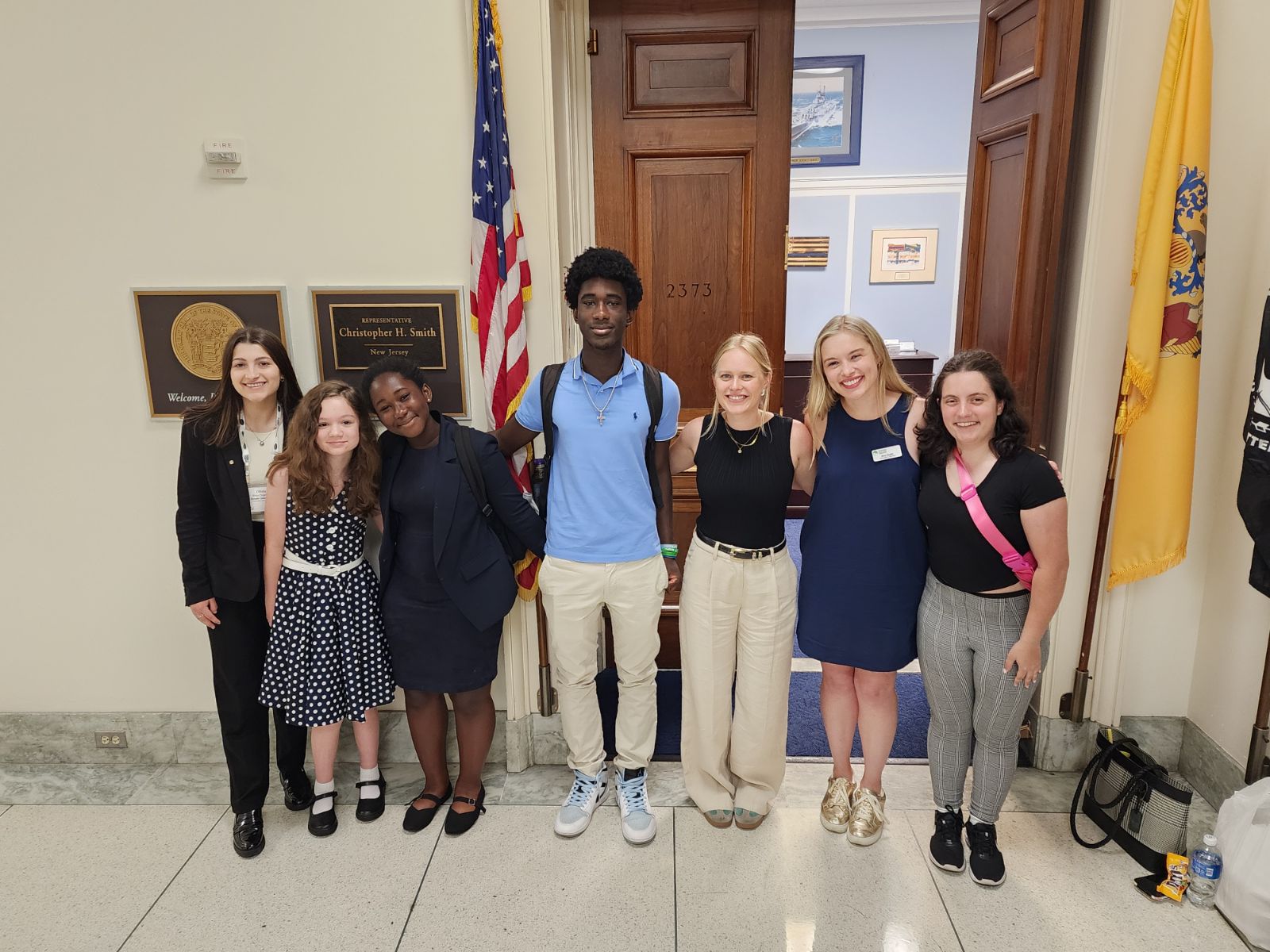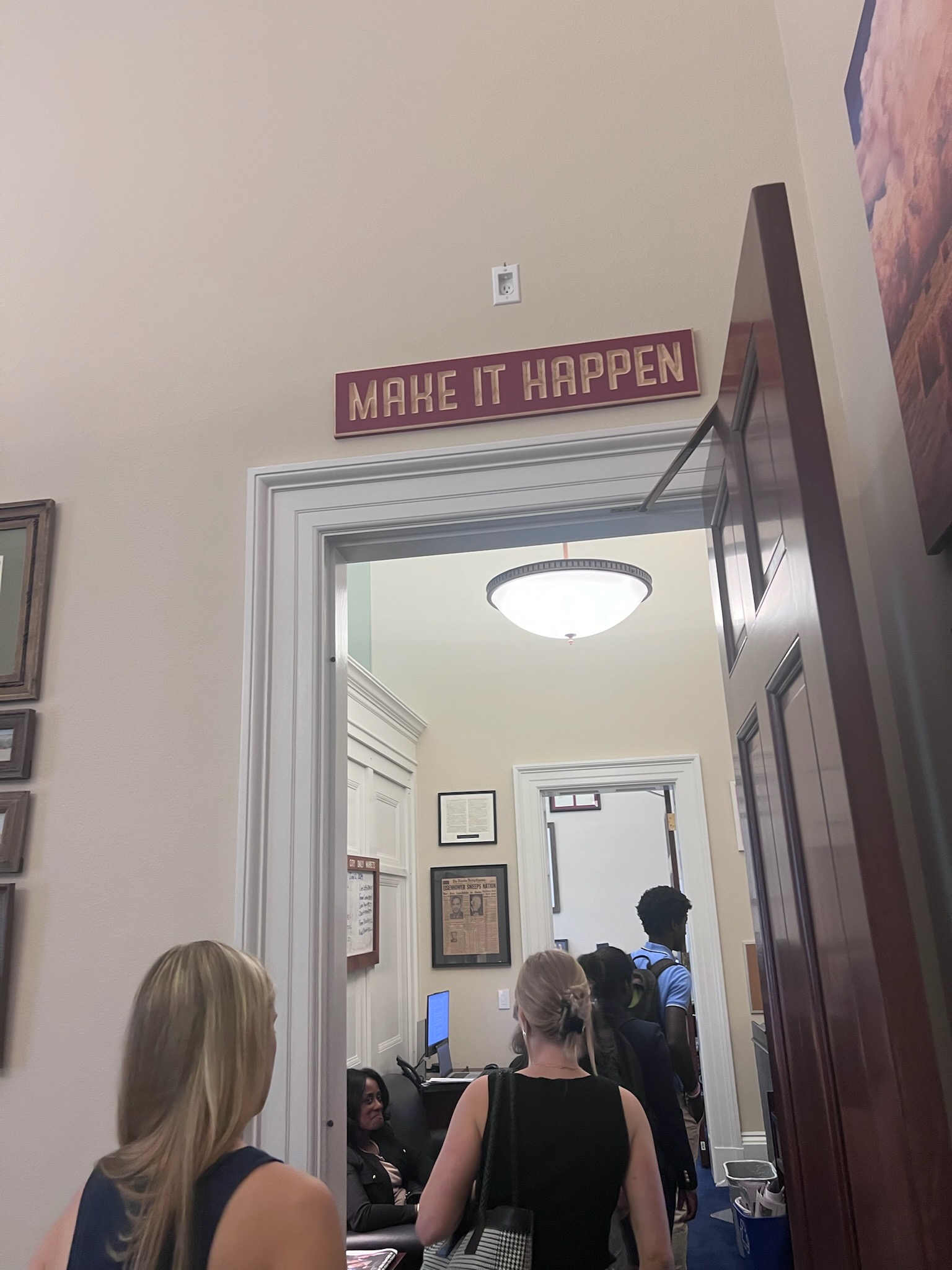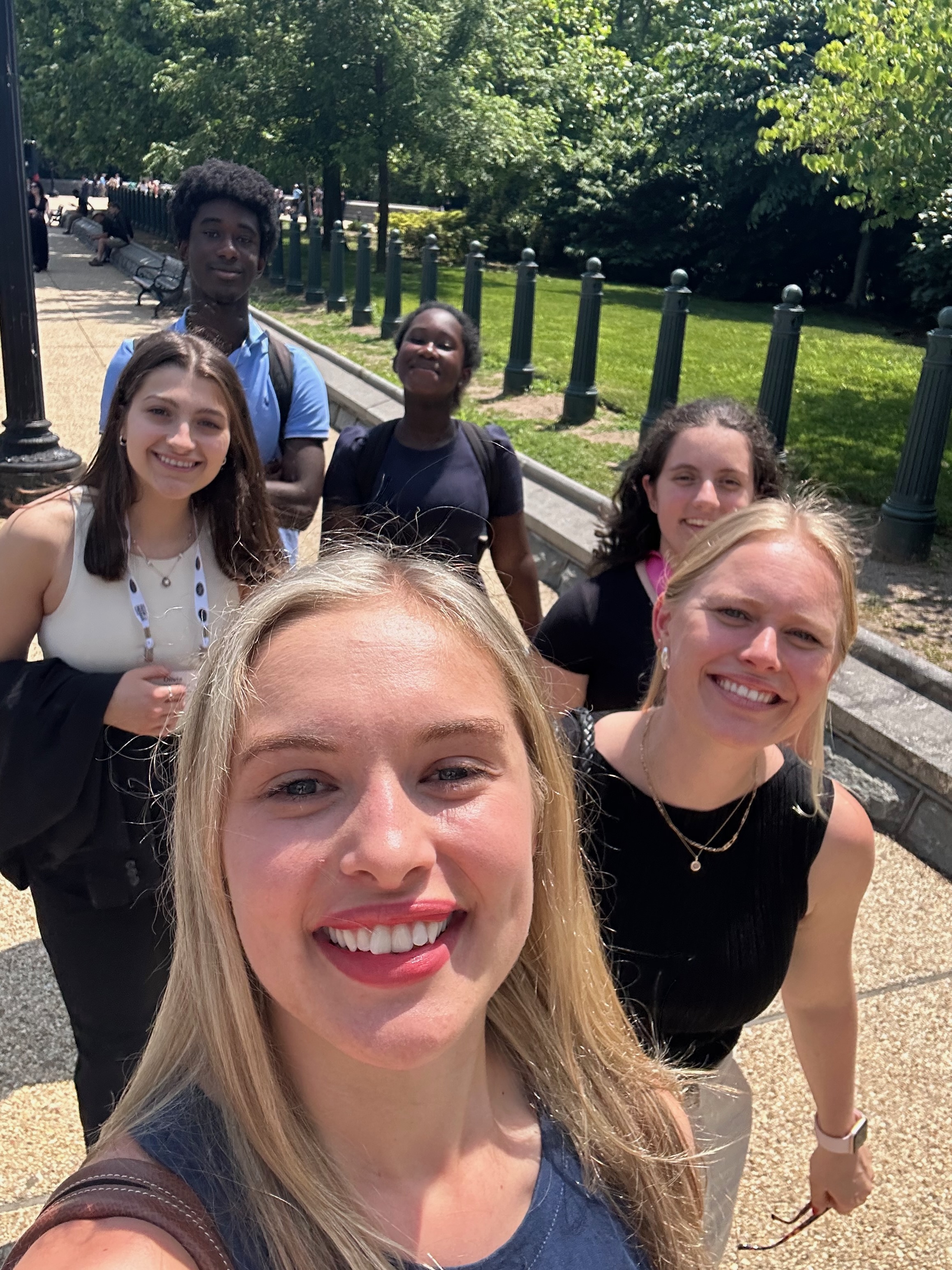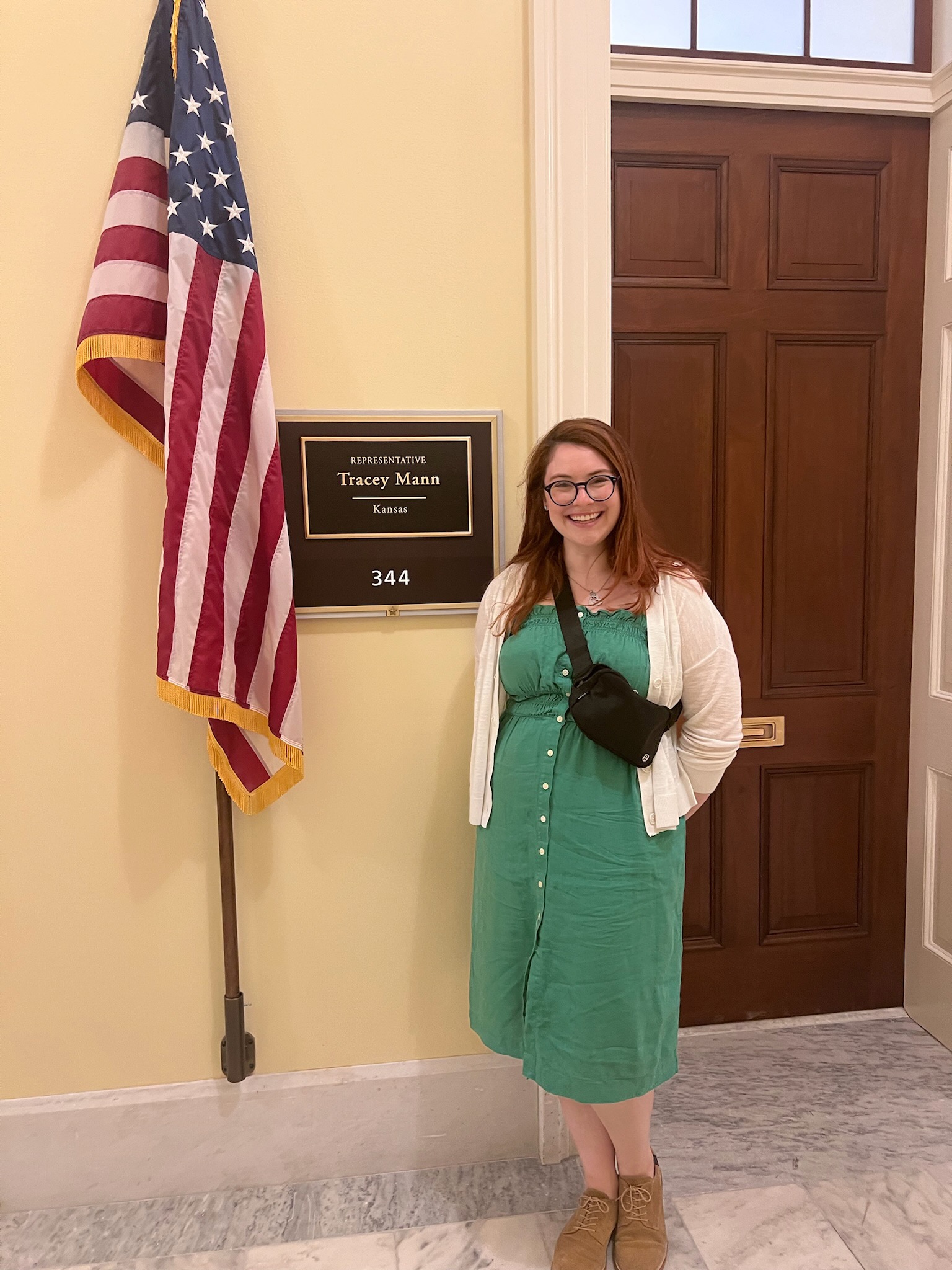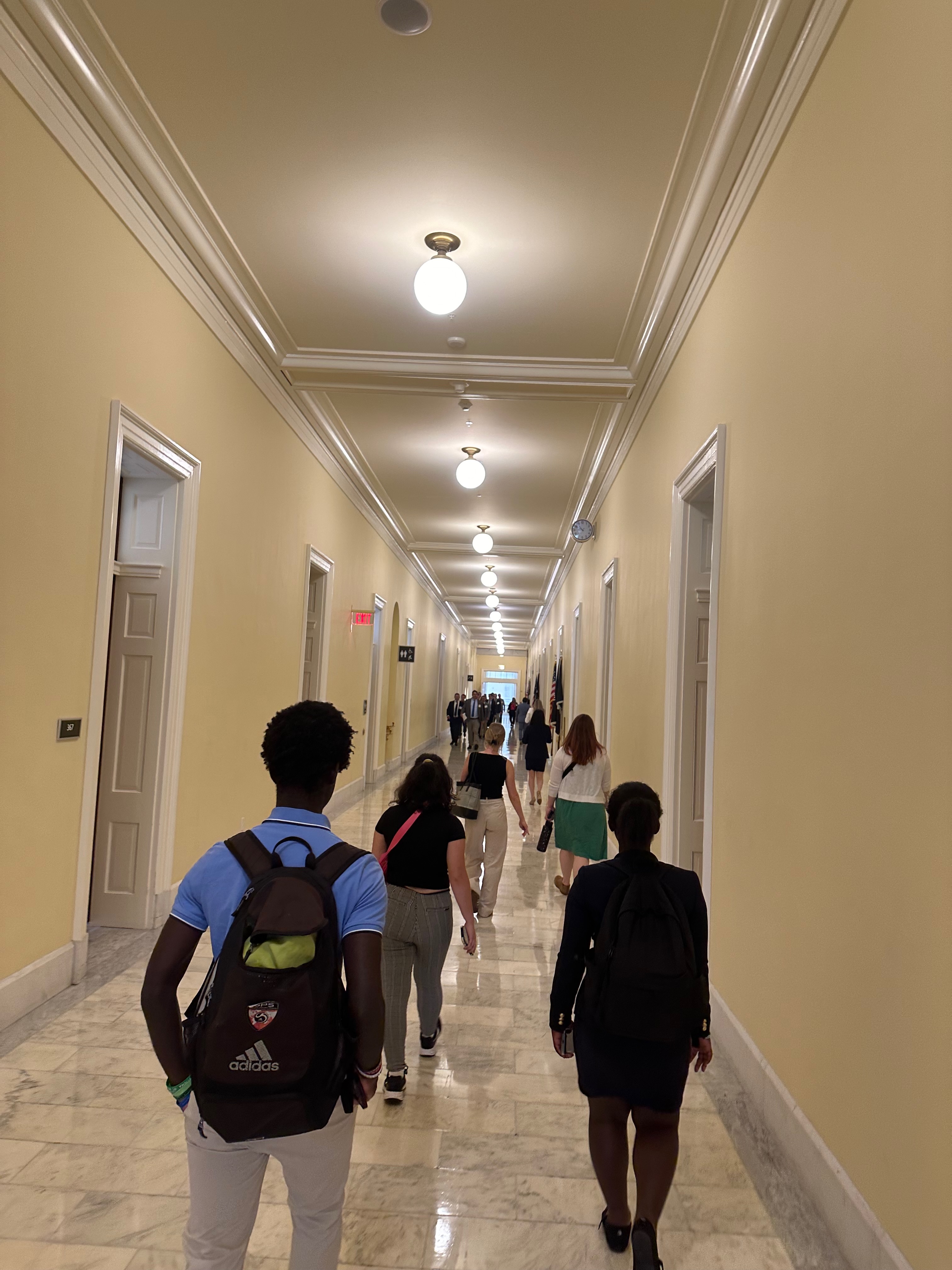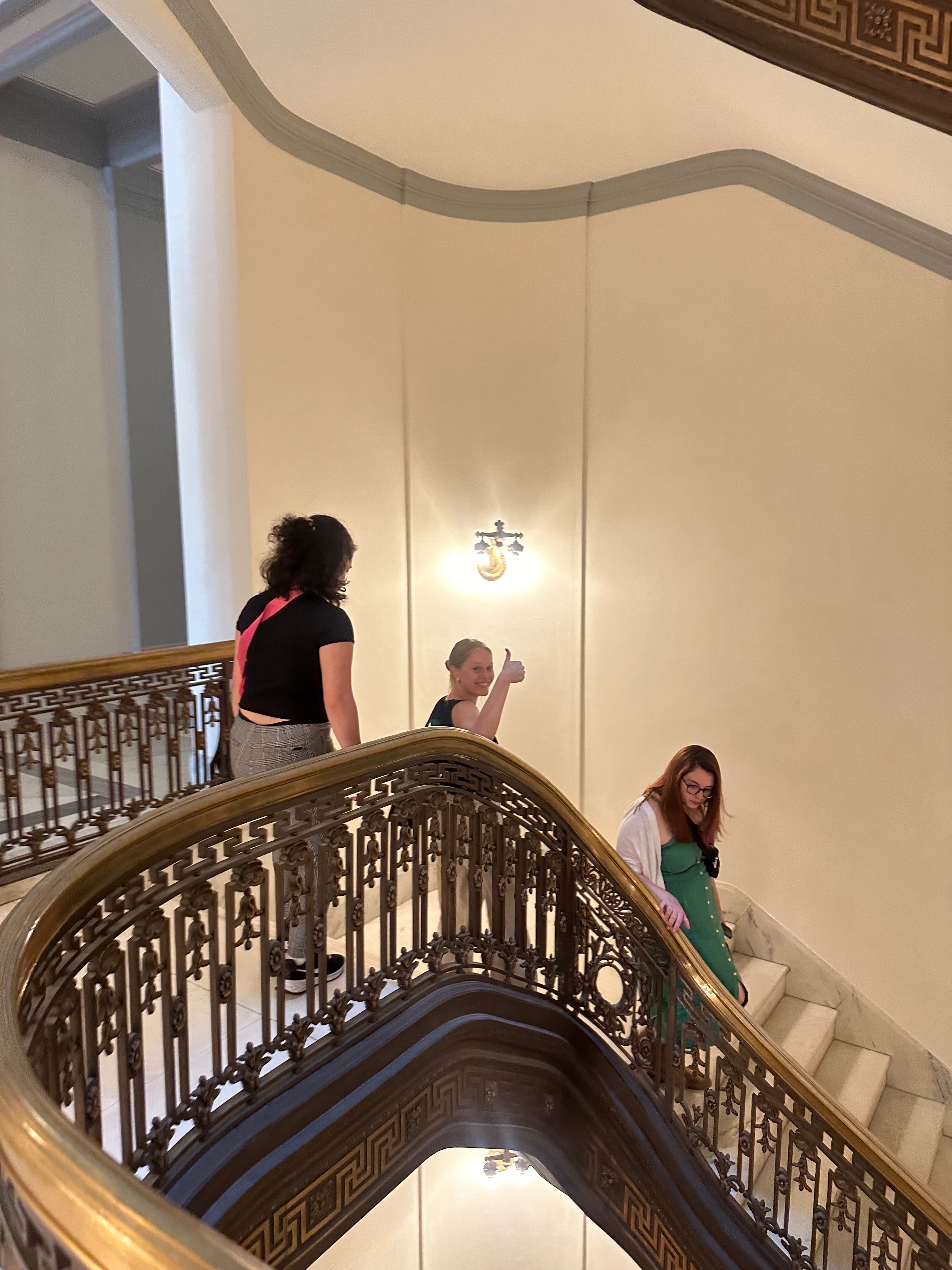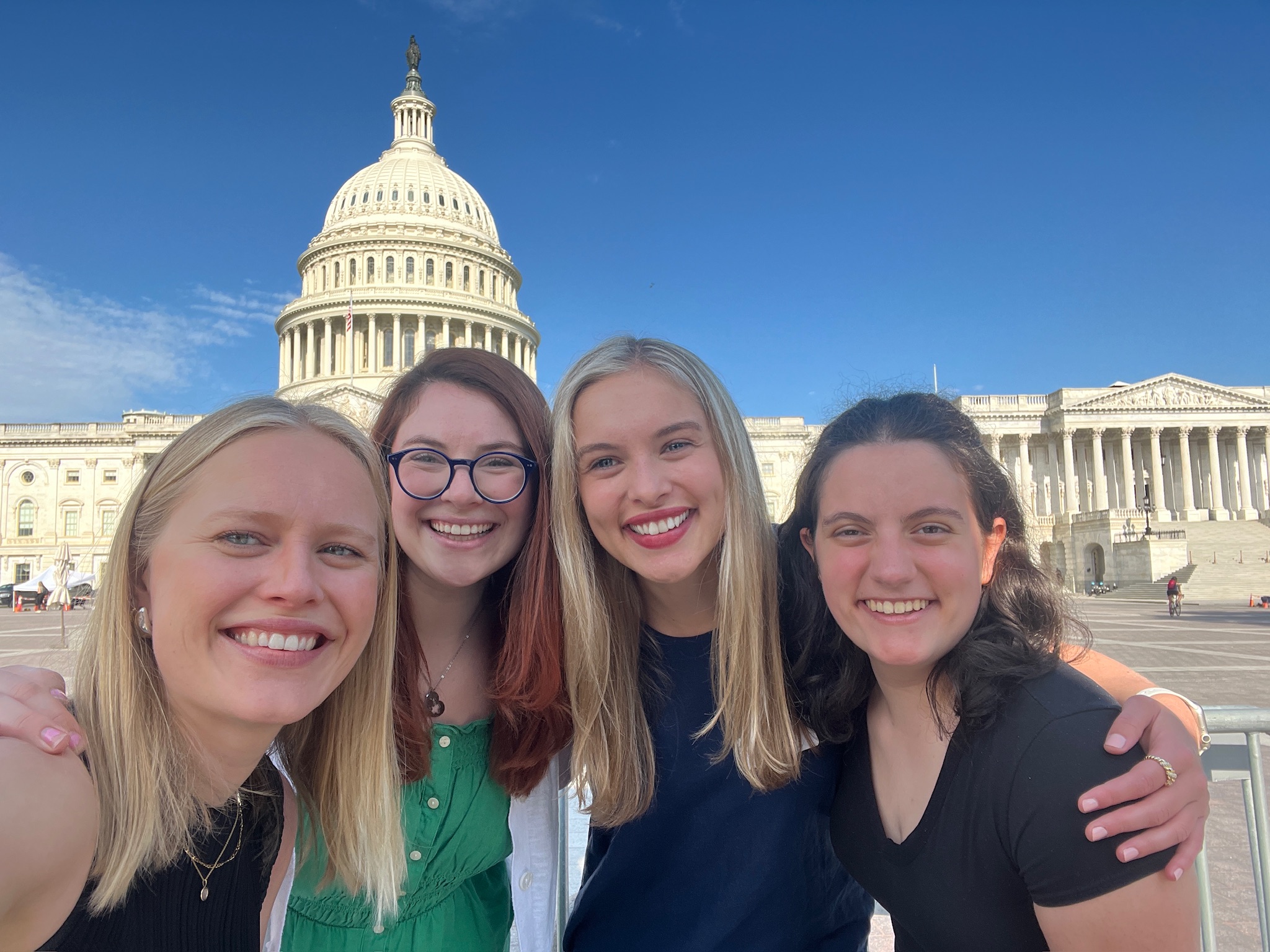
RECAP from our Sibling Action Network Leader, Amy Ursitti
“Amy, I have to go home.” A dark silhouette loomed in the doorway of the Airbnb room where I was staying in Washington, DC. I checked the clock—3:50am. My mom proceeded into my room and told me that my brother Jack, a 20-year-old with profound autism, had bitten his tongue badly and was bleeding profusely. He was being rushed to the ER in an ambulance.
Just the week before, he had his tongue partially amputated at Massachusetts General Hospital due to this same behavior. He has struggled with this self-injurious behavior for two years now, and over the past few months it has been worse than ever before. As my dad has explained it to people, this isn’t the kind of tongue biting where Jack just kind of chews his tongue. He has been biting it so hard and so often that he’s essentially biting it off. Post-surgery, if Jack continues to bite more of his tongue off, he could choke on it or have to be put on a feeding tube. At this point, the behavior is life-threatening.
For this reason, my mom had hesitated to make this trip to DC from our home in Boston in the first place. The reason we were there was for our first Profound Autism Alliance Sibling Hill Day. A few of us siblings of individuals with profound autism were gathering to meet with our legislators to advocate for more specific language to be added into the Autism CARES Act (which is up for reauthorization this year) to allocate research funding and resources to people like our siblings, who make up 26.7% of the autistic population according to the CDC’s most recent prevalence report but are only represented in 6% of clinical research studies. Our hope is that more specific language would encourage researchers to conduct studies that include people with profound autism.
My mom started volunteering in autism advocacy efforts soon after my brother’s diagnosis in 2005. She began working for Autism Speaks in 2008 and passed laws in states all across the country so that insurance would cover autism interventions. She’s had extensive experience going into meetings like these, so the plan was for her to make all of the policy points, and then all of us siblings would share our stories. When she was debating whether to come on our DC trip, I told her we needed her. Now we had no choice but to go into these meetings ourselves and do our best with pretty much no experience.
About an hour after my mom told me she had to leave, I woke up to go for a run around the National Mall. (The one constant I can always count on in life is marathon training.) My thoughts oscillated between worrying about what was going to happen to my brother and what I was going to say in these meetings without my mom there. I came to the conclusion that it was actually good that we as siblings were going to have to take charge in these meetings. Parents are (rightfully) so often the focus of any discussion around how family members are affected by profound autism, but siblings are often left in the shadows, even though we will spend the longest amount of time living with and caring for our siblings. Although the circumstances were unfortunate, one good outcome of this situation was that we would be doing true sibling-driven advocacy all the way through.
Fortunately my mom texted me a list of points to include in the policy discussion, so we all headed into the meetings with this knowledge and a one-pager to give to the staffers with whom we met. The nervousness I felt going into our first meeting quickly faded as I listened to my fellow siblings share their stories. We quickly fell into a rhythm of each of us sharing different points and perspectives supporting the need for targeted profound autism research. From Avery talking about her brother’s complex comorbid medical conditions and wanting a better quality of life for him to Maria talking about her brother’s language and love for pizza to Cassie talking about her experience as a sibling pursuing a career in research and seeing firsthand how people with profound autism are excluded, together I felt that we created a strong argument about why it is crucial that people like our siblings are included in research. These are people who have some of the highest, most complicated medical needs, but they are the least represented in autism research. This isn’t right. By the last of our ten meetings, we had all of our points down.
I am so grateful to have had these other siblings by my side and am so inspired by each of their stories. Even outside of advocating together, it was such a special experience to be around so many other people who have had the common experience of growing up with a sibling with profound autism. As my mom texted me pictures of my brother’s tongue and others saw as we were crowded in an elevator in one of the House buildings together, I was met with looks of understanding rather than looks of horror. These were people who got it. On a day that was personally pretty tough, this served as a huge comfort for me, and I could not be more appreciative.
Running from meeting to meeting all day, I didn’t have much time to check in with my family to see how Jack was doing. I had to put these worries out of my mind for the day and keep going. I honestly couldn’t imagine a better time to be doing this kind of advocacy. In Jack’s recent ER visits, he has been met with many blank stares from physicians as there isn’t much research in this area that includes people like him. Consequently, a standard treatment for something like this hasn’t been established. With more research targeted toward individuals with profound autism, hopefully we can begin to find some solutions for these complex issues. On a day when I could have simply been disheartened by the lack of solutions for Jack, I was glad to be doing something that one day might make situations like this one better.
By the end of the day, I think we had all caught the “advocacy bug.” Coming together to advocate as siblings was honestly one of the greatest experiences I’ve had in my life, and I can’t wait to do this again. There is so much we can do when we work together to make the world a better place for our siblings.
Special thanks to Maria La Terza, Avery Bell, Cassie Stevens, Savannah Guthrie, Kofi and Kristen Dadzie-Yeboah, Lindsey Nebeker, and Olivia Chapman for making the trip to DC and advocating through sharing your experiences with your siblings. Thank you also to accompanying parents Lavada Guthrie and Lynn Dadzie-Yeboah for supporting us throughout the day. You all made this possible and inspire me so much! Until next year!
